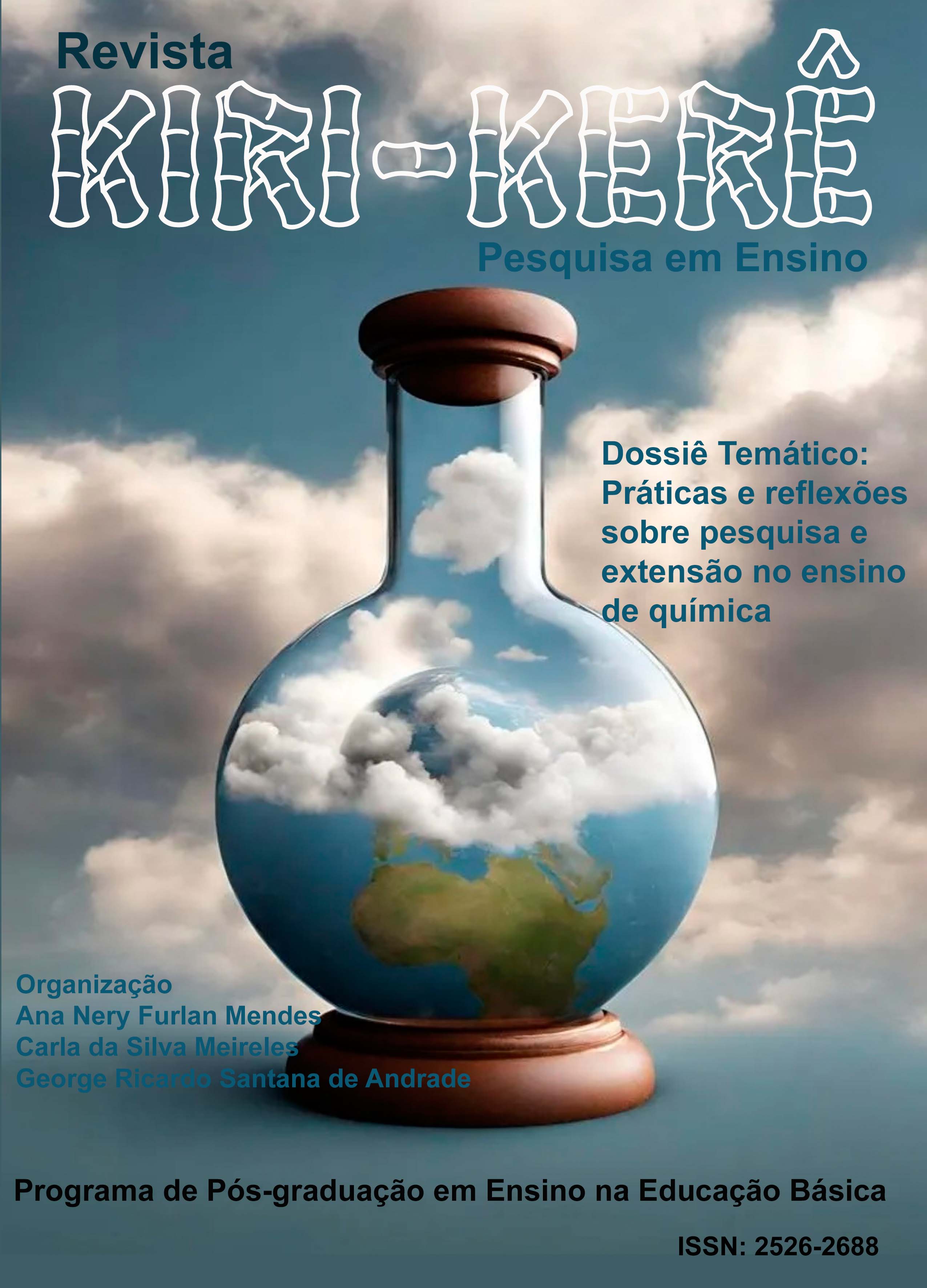From environmental racism to socioenvironmental knowledge
dialogue between knowledge masters and learners in the quilombola community of degredo
DOI:
https://doi.org/10.47456/krkr.v1i17.44551Keywords:
Quilombola Knowledge Masters; Environmental Education; Rio Doce School ProjectAbstract
The present study acknowledges and values multiple forms of knowledge across different social and cultural contexts, fostering intercultural dialogues by examining formative experiences from a Freirian perspective, promoted by the Rio Doce Escolar Project, within the Quilombola Community of Degredo in the municipality of Linhares/ES. This approach is based on research methodology, with an emphasis on Oral History. The study highlights the deep understanding of the community's Knowledge Masters following the rupture of the Samarco mining company's dam in the municipality of Bento Rodrigues, in Mariana/MG, which affected the entire length of the Rio Doce, from Minas Gerais to its mouth, where the Quilombola territory is located. The findings point to the need to recognize and value the many voices that advocate for the traditional knowledge of Quilombola communities in addressing environmental racism. This struggle arises from the interconnectedness of climate, racial, and social justice, emphasising the importance of including multiple voices in decision-making processes, debates and environmental politcs in the face of environmental racism experienced by the community.
Downloads
References
Belmont, M. (Organização). Racismo ambiental e emergências climáticas no Brasil [livro eletrônico]. São Paulo, SP: Oralituras: Instituto de Referência Negra Peregum, 2023.
BRASIL. Constituição da República Federativa do Brasil. Brasília, DF: Senado Federal, 1988. Disponível em: http://www.senado.gov.br/legislacao/const/textoprev.htm. Acesso em: 16 de março de 2024.
BRASIL. Lei Nº 9.795, de 27 de abril de 1999. Dispõe sobre a educação ambiental, institui a Política Nacional de Educação Ambiental e dá outras providências. Disponível em: https://www.planalto. gov.br/ccivil _03/leis /l9795.htm. Acesso em: 16 jan. 2023.
BRASIL. Decreto nº 4.281, de 25 de junho de 2002. Regulamenta a Lei nº 9.795, de 27 de abril de 1999, que institui a Política Nacional de Educação Ambiental, e dá outras providências. Disponível em: <https://www.planalto .gov.br/ccivil_03/decreto/2002/d4281.htm>. Acesso em: 13 fev. 2024.
FREIRE, P. Crítico, radical e otimista. [Entrevista cedida à] Neidson Rodrigues. Presença Pedagógica, Belo Horizonte, v.1, n.1, p.5-12, fev. 1995. Disponível em: http://rbeducacaobasica.com.br/2021/09/14/numero-especial-paulo-freire/. Acesso em: 20 jan.2024.
FUNDAÇÃO RENOVA. PG-033 – Educação para Revitalização da Bacia do Rio Doce. Definição do Programa – Etapa 3. 2018. Disponível em: https://www.fundacaorenova.org/conheca-os-programas/socioambientais. Acesso em: 17 jan. 2024.
GOMES, A. Ecoafricanidades: entre o natural e o antrópico, o caminho é grande. In: BELMONT, Mariana (Organização). Racismo ambiental e emergências climáticas no Brasil [livro eletrônico]. São Paulo, SP: Oralituras: Instituto de Referência Negra Peregum, 2023. Formato PDF. p. 41-49.
HERCULANO, S. O clamor por justiça ambiental e contra o racismo ambiental.2006. Disponível em: http://www.sp.senac.br/hotsites/ InterfacEHS/ art-2-2008-6.pdf. Acesso em: 20 ago. 2023.
IFES; FACTO; SEDU; FUNDAÇÃO RENOVA. Formação de Educadores em Educação Ambiental nas Escolas Capixabas do Rio Doce – Programa Rio Doce Escolar. 2021. Disponível em: https://vilavelha.ifes.edu.br/images/stories /files/2022/plano_trabalho_riodoceescolar.pdf. Acesso em: 17 jan. 2023.
Instituto Brasileiro de Geografia e Estatística (IBGE). Panorama do censo 2022. Disponível em: https://censo2022.ibge.gov.br/panorama/portal. Acesso em: 17 mar. 2024.
KRENAK, A. Ideias para adiar o fim do mundo. 2° Ed. São Paulo: Companhia das Letras, 2020.
MEIHY, J. C. S. B.; HOLANDA, F. História Oral: como fazer, como pensar. 2. ed. 4. reimpr. São Paulo: Contexto, 2015.
SANTOS, A. B. dos.; MAYER, J. Início, meio, início: Conversa com Antônio Bispo dos Santos. Indisciplinar, [S. l.], v. 6, n. 1, p. 52–69, 2020. DOI: 10.35699/2525-3263.2020.26241. Disponível em: https://periodicos.ufmg.br/index.php/indisciplinar/article/view/26241. Acesso em: 8 mar. 2024.
SANTOS, A. B.. Colonização, Quilombo: modos e significados. 2 ed. Brasília: INCTI; UnB; INCT; CNPq; MCTI, 2023.120p.
SANTOS, B. DE S.. Para além do pensamento abissal: das linhas globais a uma ecologia de saberes. Novos estudos CEBRAP, São Paulo, n. 79, p. 71–94, nov. 2007. Disponível em: <https://www.scielo.br/j/nec>. Acesso em: 07 mar. 2024.
SANTOS, W.L.P. dos; SCHNETZLER, R.P. Educação em química: compromisso com a cidadania. 4. ed. Ijuí: Ed. Unijuí, 2010. 160 p. (Coleção Educação em Química).
TERMO DE TRANSAÇÃO E AJUSTAMENTO DE CONDUTA. 2016.Disponível em: https://www.fundacaorenova.org/wp-content/uploads/ 2016/07/ ttac final assinado -para-encaminhamento-e-uso-geral.pdf. Acesso em: 17 jan. 23.
Downloads
Published
Issue
Section
License
Copyright (c) 2024 DÉBORA LÁZARA ROSA, Jadilson Lino de Oliveira Gomes, Manuella Villar Amado

This work is licensed under a Creative Commons Attribution-NonCommercial 4.0 International License.
The authors accept, when sending their works, the assignment of their copyrights.

